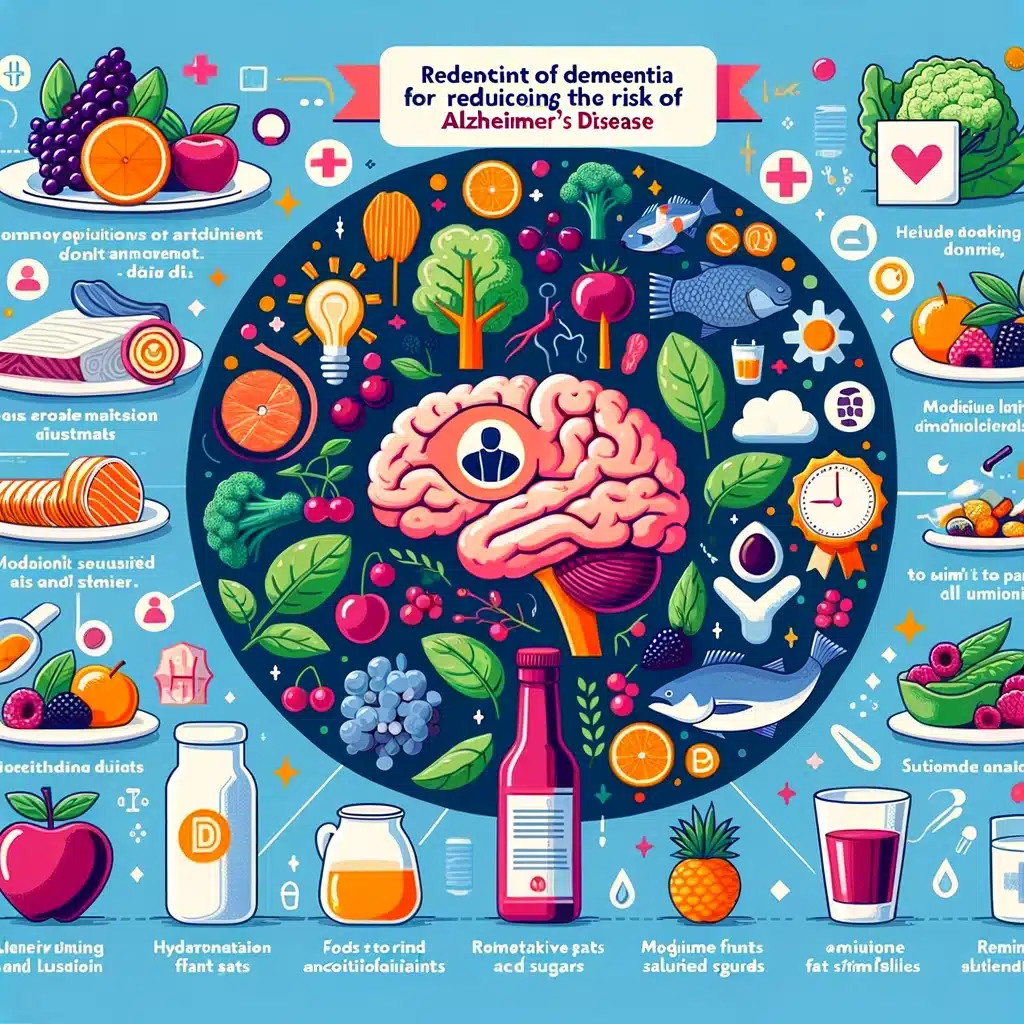How can dietary choices impact the prevention and management of dementia and Alzheimer’s disease?
In managing or reducing the risk of dementia and Alzheimer’s disease, diet plays a crucial role. Here are several dietary strategies that may help:
-
Adopt a Mediterranean Diet: This diet emphasizes eating primarily plant-based foods, such as fruits and vegetables, whole grains, legumes, and nuts. It includes using healthy fats such as olive oil instead of butter and eating fish and poultry instead of red meat. Studies suggest that following a Mediterranean diet may reduce the risk of Alzheimer’s disease.
-
Increase Antioxidant Intake: Foods rich in antioxidants can help combat oxidative stress, which is linked to brain aging and neurodegenerative diseases. Berries, leafy green vegetables, nuts, and seeds are excellent sources of antioxidants.
-
Maintain a Balanced Diet with Omega-3 Fatty Acids: Omega-3 fatty acids, found in fatty fish like salmon, trout, and sardines, are believed to be beneficial for brain health. They can help reduce the risk of developing cognitive decline and dementia.
-
Limit Intake of Saturated Fats and Sugars: Diets high in saturated fats and sugar are associated with an increased risk of dementia. Limiting these in your diet and focusing on whole, unprocessed foods can contribute to better brain health.
-
Stay Hydrated: Adequate hydration is essential for maintaining cognitive function. Water is the best choice for staying hydrated.
-
Consider the MIND Diet: The MIND diet combines the Mediterranean diet and the DASH diet (Dietary Approaches to Stop Hypertension) and specifically targets brain health. It emphasizes eating from ten brain-healthy food groups and limiting intake from five unhealthy groups.
-
Moderate Alcohol Consumption: If you consume alcohol, do so in moderation. Some studies suggest that moderate consumption of alcohol, particularly red wine, may be associated with a reduced risk of dementia. However, excessive drinking is a risk factor for dementia.
-
Vitamin D: Some studies suggest a link between vitamin D deficiency and an increased risk of cognitive decline and dementia. While sunlight is the best natural source of vitamin D, it can also be obtained from dietary sources like fatty fish, fortified foods, and supplements.
